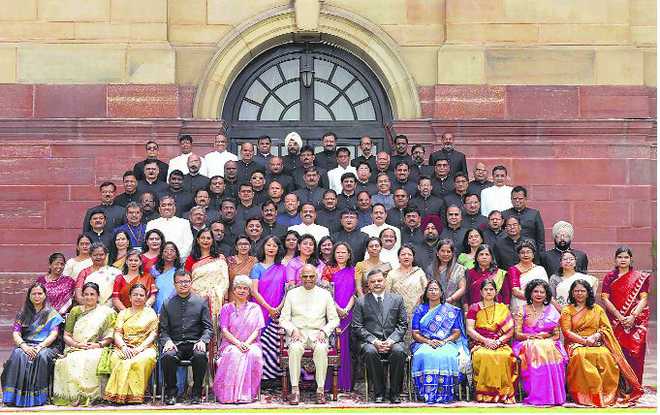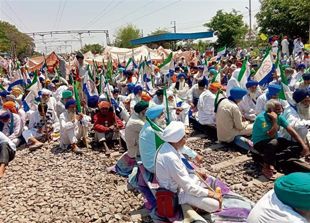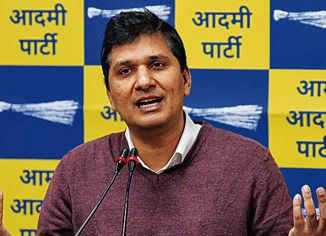
ALL AT SEA: A clueless officer cannot guide others based only on common sense. Sectoral specialisation based on aptitude is a must.
AMITABHA BHATTACHARYA
Former IAS officer
Sardar Patel's stirring statement during the Constituent Assembly debates sounds prophetic now. Patel had warned that "you will not have a united India, if you have not a good all-India service which has the independence of mind to speak out its mind, which has a sense of security."
In 70 years, the composition of the Indian Administrative Service (IAS) as also the state of the nation they are to serve have undergone major changes. But the rationale for all-India services in our federal structure and the high ideals set by Patel and supported by Ambedkar continue to inspire civil servants and millions aspiring to join their ranks.
However, India today, especially since the early 90s, is very different from what it was at the time of independence. Is the IAS equipped to handle the myriad challenges it encounters now?
Broadly speaking, the IAS can take some legitimate pride in the steady and largely inclusive development of the nation as also for maintaining its unity and integrity envisioned in the constitution. By the same logic, it has also to accept a large part of the responsibility for our failures. In fact, the responsibility of the IAS is perhaps more direct for our dismal state of human development.
Many factors have contributed for the IAS to be found wanting in its ability to cope with the demands of an aspirational India, the most important being the quality of recruits, lack of sectoral specialisation, political interference and corruption. And these are often interlinked. Unless these concerns are admitted and addressed, further institutional decline of IAS as a system cannot be prevented.
Not the best anymore
Firstly, there has been a noticeable change in the quality of recruits, more so from the liberating 90s. The increasing numbers appearing at the civil services examination give a distorted picture. The relevant question is their quality and whether the IAS continues to draw a fair share of the country's best talent. Admittedly, the IAS today is more representative of our society, thanks to democratisation of education and affirmative action. But is it attracting the brightest from each social group? Why are there huge regional disparities?
A multi-pronged approach is needed to address the issue. Admitting the quality of recruits as a major concern, campaigns in major institutions in each state should highlight the challenges, opportunities and rewards of the IAS which no other service in the world can perhaps match. Further, the examination process should be shortened and the number of subjects restricted. Additionally, the upper age limit should be reduced at least by five years for each category and the number of attempts curtailed to two or three. Regular recruits should spend their best productive life serving in the districts, not in the arduous examination process. Moreover, the background and marks of successful candidates should be in public domain.
Generalists won’t do
Secondly, for many reasons, formulation of policies has become complex, demanding specialisation. A clueless officer cannot guide others based only on common sense. Therefore, after their first decade of immersion in the district, officers should be encouraged to acquire sectoral specialisation, based on their aptitude, qualification and preference. The IAS associations should take the lead in helping the state and the union governments undertake this major exercise.
The political babus
Thirdly, undue political interference started from 1947 but reached new heights in the mid-seventies. From the beginning and throughout their career, IAS officers have to work, legitimately, with politicians many of whom are often interested in transfer cases and tenders. Such interference can be minimised by clear framing of rules with the least provision for discretions. But a few bureaucrats aspiring for lucrative postings and post-retirement sinecures willingly enter into `collusive understandings’ and their success tarnishes the image of the whole service. One option is to reduce/rationalise the number of departments to reduce their differential attractiveness.
In public perception, shared by many officers, the most important ministries are the economic ones. This perceived classification explains why IAS officers often vie for posts they are the least equipped for creating a fertile ground for lobbying and string-pulling. Regular induction of a small percentage of lateral entrants, at higher levels, especially in the economic and infrastructure ministries, may discourage such tendencies and foster a spirit of competition.
Periodic cleaning
Lastly, corruption being a major issue demands concerted action. Officers, including honest ones, get victimised in political crossfire, especially when the regime changes. Those without political patronage, are quickly identified, isolated and punished. But the dishonest are often politically protected. With an active judiciary and hyperactive media, such cases attract the limelight. Unfortunately, inefficiency and inaction are tolerated and collusive partnership rewarded. Therefore, periodic cleansing by compulsory retirement or voluntary retirement should be systematically resorted to.
The toxic carrot
In addition, there should be an initiative to remove the carrot of post-retirement rehabilitation. A few officers, including some deserving ones, derive this benefit but the whole system gets corroded from inside. Some major compromises are allegedly made in anticipation of such gains.
The steel frame has been painted periodically to hide the rust and but not strengthened in real terms. Though the scenario is not pessimistic-- and there are umpteen individual examples to cheer about-- the threat to the IAS as a system is real. Therefore, reform must come from within. The IAS should lead by example. But unless there is a political intent to prioritise this as a serious governance issue, no worthwhile gain is possible. Ideally, the political parties should come to an enlightened consensus to sharpen the most potent instrument of our administration. Would they be interested?



























